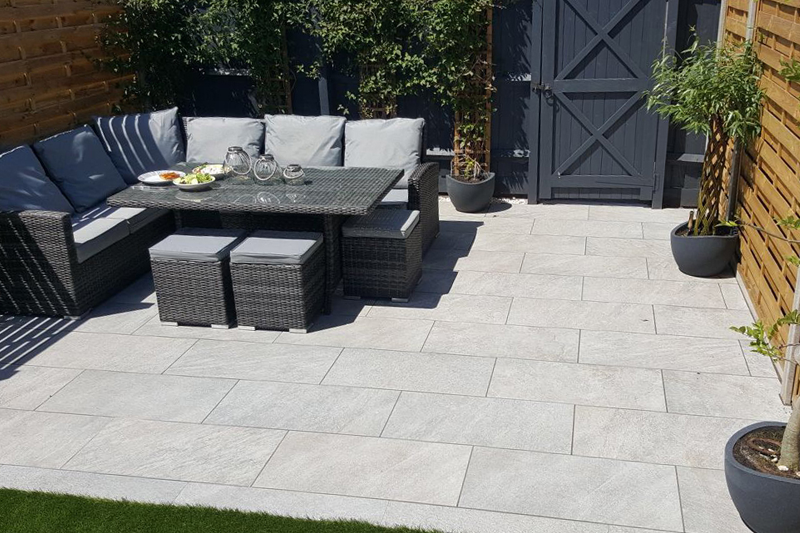
Rex Nye, Managing Director of D.W. Nye and an NBG Executive Board Member, explains why he believes the popularity of porcelain for landscaping projects is only set to rise.
The word ‘gardening’, depending on whether you know your dandelions from your daffodils, might fill you with dread or incite utter joy. Either way, whether you love or loathe gardens, no one can deny that having an outdoor space to call your own is a great way to relax and unwind during the warmer months.
But what if you don’t have time to keep the space properly maintained or lack the mobility for weekly weeding and regular mowing? The answer to this horticultural conundrum? Investing in porcelain paving.
Porcelain has quickly become the ‘next big thing’ in landscaping circles and is now being used for all types of outdoor projects, including patios and pathways. Porcelain, though — it doesn’t sound exactly hardwearing or low maintenance, does it? After all, isn’t it what they make dainty little teacups and delicate decorative objects from?
Yet, contrary to its perceived reputation and association with centuries old Chinese dynasties, porcelain is incredibly durable, surprisingly low maintenance and is also non-slip. Not only is it an amazingly flexible option, porcelain also has an incredible amount of strength, being highly resistant to chemicals and sudden changes in temperature. Ultimately, it’s everything you could possibly need for paving a garden patio area without worrying about a long term maintenance plan.
The advantages of porcelain as a paving material don’t stop there. Aside from its ability to resist staining, mould, and moss, it provides a multitude of aesthetically pleasing options for the modern day garden space. From natural stone to timber effects, porcelain can be finished in nearly any style your heart desires. So if you’re planning to recreate an ornate Italian marble marvel, or desire some decking without having to stand for any of the sanding, porcelain is a great way to get the effect you want without the worry of future maintenance meltdowns.
This means porcelain also makes an ideal material for driveways. So whilst you might think it’s odd to opt for tiles instead of the more traditional choices such as sandstone or concrete, porcelain’s durability and ability to withstand damage from frost and moisture makes it a formidable alternative to more conventional choices.
Installing porcelain paving also comes with its benefits. For example, compared with concrete, porcelain is easy to cut and far less labour intensive. Not only that, because it’s more lightweight, porcelain is also easier to transport and lift, meaning it works well for largescale projects.
“Yet, contrary to its perceived reputation and association with centuries old Chinese dynasties, porcelain is incredibly durable, surprisingly low maintenance and is also non-slip.”
The main images show Digby Stone’s Scout Fog paving from the supplier’s Regale Porcelain collection. Described as a “cool contemporary light grey with subtle waves of pale fog running throughout” it is said to be an ideal choice for modern garden designs.
The product is available in various sizes including a choice of three-size project sets, featuring 2 x 810 by 810mm slabs, 2 x 810 by 405mm slabs and 2 x 600 by 600mm slabs.









